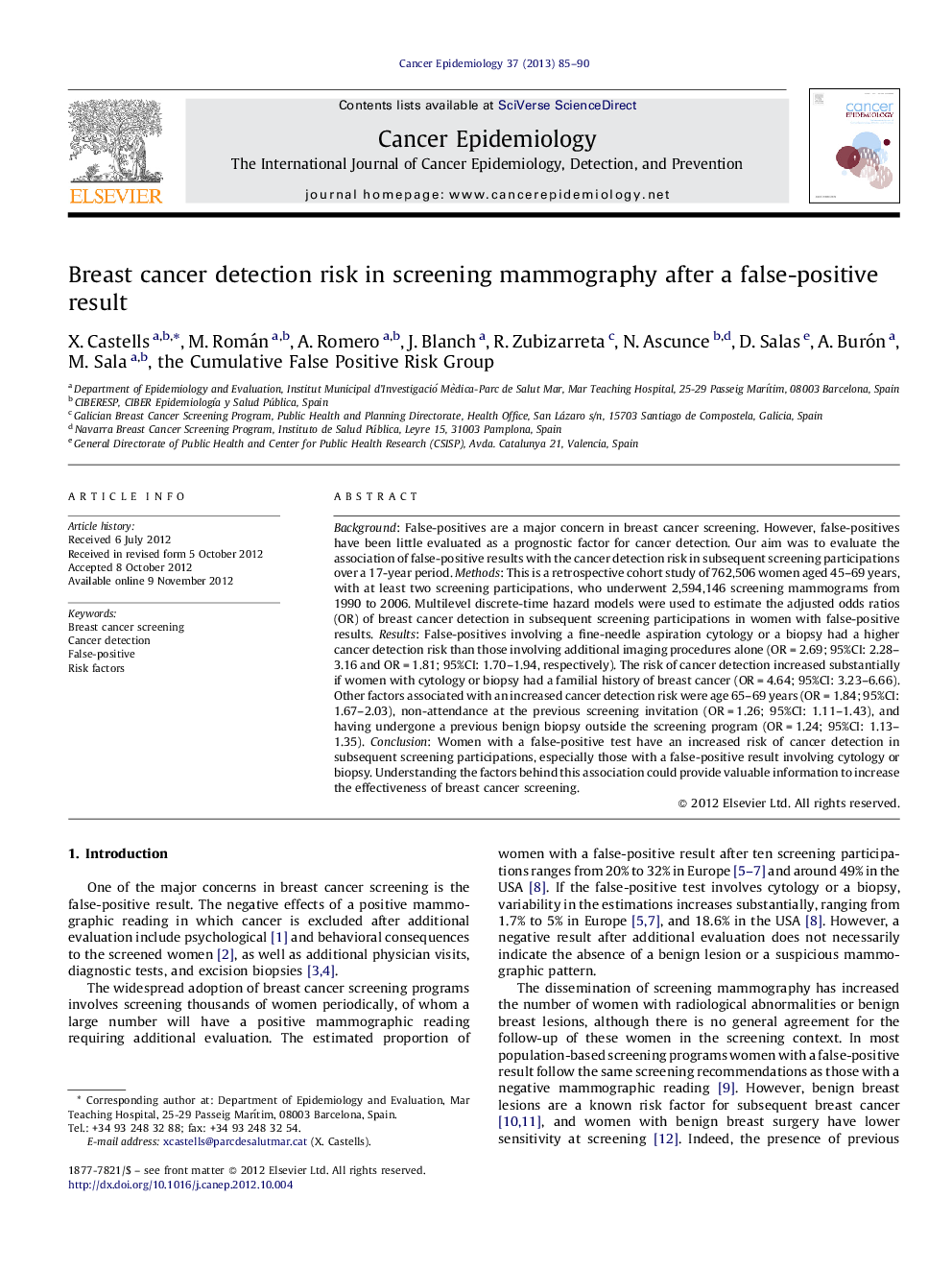| Article ID | Journal | Published Year | Pages | File Type |
|---|---|---|---|---|
| 10897485 | Cancer Epidemiology | 2013 | 6 Pages |
Abstract
Background: False-positives are a major concern in breast cancer screening. However, false-positives have been little evaluated as a prognostic factor for cancer detection. Our aim was to evaluate the association of false-positive results with the cancer detection risk in subsequent screening participations over a 17-year period. Methods: This is a retrospective cohort study of 762,506 women aged 45-69 years, with at least two screening participations, who underwent 2,594,146 screening mammograms from 1990 to 2006. Multilevel discrete-time hazard models were used to estimate the adjusted odds ratios (OR) of breast cancer detection in subsequent screening participations in women with false-positive results. Results: False-positives involving a fine-needle aspiration cytology or a biopsy had a higher cancer detection risk than those involving additional imaging procedures alone (ORÂ =Â 2.69; 95%CI: 2.28-3.16 and ORÂ =Â 1.81; 95%CI: 1.70-1.94, respectively). The risk of cancer detection increased substantially if women with cytology or biopsy had a familial history of breast cancer (ORÂ =Â 4.64; 95%CI: 3.23-6.66). Other factors associated with an increased cancer detection risk were age 65-69 years (ORÂ =Â 1.84; 95%CI: 1.67-2.03), non-attendance at the previous screening invitation (ORÂ =Â 1.26; 95%CI: 1.11-1.43), and having undergone a previous benign biopsy outside the screening program (ORÂ =Â 1.24; 95%CI: 1.13-1.35). Conclusion: Women with a false-positive test have an increased risk of cancer detection in subsequent screening participations, especially those with a false-positive result involving cytology or biopsy. Understanding the factors behind this association could provide valuable information to increase the effectiveness of breast cancer screening.
Related Topics
Life Sciences
Biochemistry, Genetics and Molecular Biology
Cancer Research
Authors
X. Castells, M. Román, A. Romero, J. Blanch, R. Zubizarreta, N. Ascunce, D. Salas, A. Burón, M. Sala, the Cumulative False Positive Risk Group the Cumulative False Positive Risk Group,
